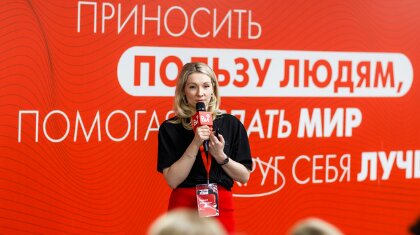Health and tariffs officials have decided to prevent pharmaceuticals companies from raising prices this year on some of their most important drugs, a move producers said could mean that some medicine will disappear from shelves.
Last week, Federal Tariffs Service chief Sergei Novikov and Nikolai Yurgel, head of the Federal Health and Social Development Inspection Service, sent a joint letter to their regional branches and to the heads of drug companies and distributors. A copy of the letter was obtained by Vedomosti, and a spokesperson for the health service confirmed its authenticity.
Yurgel and Novikov warned that they would not allow producers to raise prices this year for things on the Health and Social Development Ministry's list of vitally essential medicines. The list has 495 internationally nonpatented drugs, including arbidol, drotaverine and ibuprofen. According to the Pharmexpert market researcher, medicines from the list accounted for about 35 percent of the $16 billion Russian pharmaceuticals market last year.
The officials said they would even refuse price hikes related to rising production costs, including higher prices for substances, excise taxes on alcohol, rising rent and so forth.
The Federal Health and Social Development Inspection Service has long registered the prices for the most important medicines, but it has always been seen as a formality. Producers could justify just about any cost, said an executive at a pharmaceuticals company.
But last year, officials developed a methodology for determining prices for medicine. The document says wholesale prices can only be revised once per year and that increases cannot be greater than inflation. Additionally, the new price must take into account the average prices for the past half year, meaning that in theory, prices for medicine could even fall.
Producers are required to register their new prices by April 1. Officials apparently suspect the companies of already raising prices their prices since they aren't even planning to index them to inflation, said Sergei Shulyak, chief executive of DSM Group. The letter from Yurgel and Novikov says that during the registration process, only data for the second half of 2009 would be considered.
Spokespeople for the health watchdog and tariffs service declined to comment on the letter.
"There are objective reasons that prices for medicine rise. Attempting to freeze growth, even if it's justified, discredits the idea of the state regulating prices," said Viktor Dmitriyev, head of the Association of Russian Pharmaceuticals Producers.
He said some companies were considering reducing production or partially moving it aboard, for example, within the Commonwealth of Independent States. Another option would be raising prices for drugs that are not on the vitally essential list, Dmitriyev said.
A senior executive at a Russian pharmaceuticals company agreed that the officials' letter would mean production of some medicines would become loss-making.

